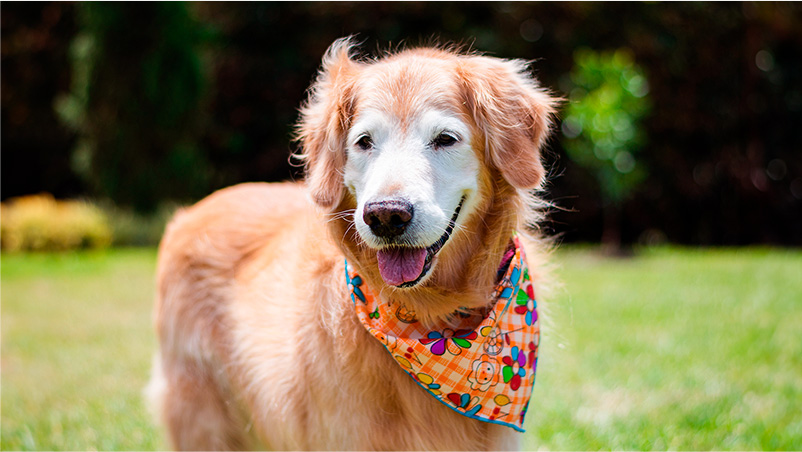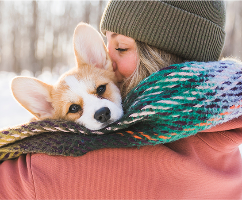As our precious fur babies age, they change! The needs of senior dogs are different from their past puppy selves. So
how do we, as responsible pet parents, give senior dogs the care they deserve?
Dogs are considered seniors at different ages. Small dogs are considered seniors at 10–12 years old. Medium breeds
are 7-8 years old. Giant is considered senior at 5 years. Whatever the breed, your fur baby spends a lot of time in
this stage!
As your fur baby approaches their senior status, they may encounter three big changes: mental decline, mobility
issues and general discomfort and/or stress. Despite these changes, you can still help your four-legged companion
thrive in their twilight years.
Here are 6 useful tips to keep your senior dog happy as they age.
1. Offset Cognitive Decline With Mental And Physical Stimulation
Just like “hoomans,” our fur babies are susceptible to cognitive decline as they age. Keep their minds sharp and
happy by providing mental exercise! Set aside some time every day to challenge their brain and prevent boredom.
Try out “sniff walks” (letting your dog follow their nose on walks), puzzle toys like treatsters and trick training. Many people believe that dogs in their golden years are beyond training. The good news is that a senior dog can be taught new tricks. Dogs never lose their enthusiasm to experiment and play.
As with all dogs, the training methodology you use should reflect what we understand about how dogs learn, which means that positive reinforcement training is the way to go. One of the best (and most fun) ways to work with senior dogs is to turn the process into a game, and nothing makes that easier than clicker training.
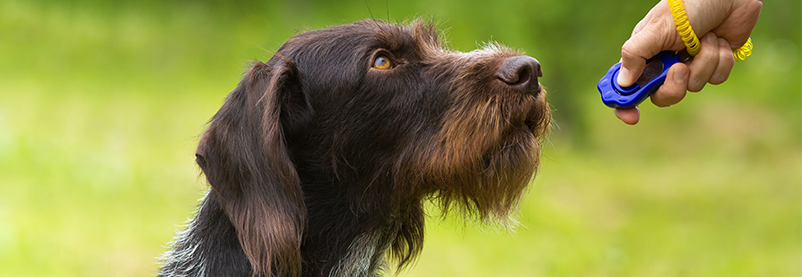
The clicker is a small plastic device that accurately notes the instant your dog performs the desired behavior, which is subsequently rewarded with a treat. The dog soon associates the behavior that accompanied the sound of the click with the following goodie.
Clicker training can be used to teach simple commands such as sit, down, stay, and come, as well as more complicated behavioral issues such as leash aggression and reactivity. If possible, choose treats that contain glucosamine, which promotes joint health. Additionally, consider looking into a cognitive supplement like pawTree’s Brain Drops to maintain brain health and increase cognitive function.
2. Incorporate Age-Appropriate Exercise
A senior dog doesn’t have to mean an inactive dog. Older dogs still want and should have a good amount of physical
activity in their lives! Regular exercise helps your fur baby maintain a healthy weight, stay limber and keep up
strength — all of which will support their joints.
The key here is to be aware of their limitations and adjust their exercise accordingly. Instead of long hikes or
runs, take an outdoor stroll, swim, or play gentle games of fetch.

3. Care For Their Changing Mobility
As they age, many fur babies will develop issues like arthritis, stiff joints and general body discomfort. As they
do, they’ll struggle to do simple things they used to love to do — like run down the stairs or jump in the car.
When your fur baby shows signs of changing mobility, it’s time to make your home accessible! Consider providing
traction support on slippery floors (lay out yoga mats or rugs) and look into ramps or pet stairs to help them get
where they love to go without discomfort.
One of the very best things you can do for their mobility is provide a joint supplement. A good joint supplement
will support healthy soft tissue, healthy cartilage, and thick, viscous joint fluid. We recommend PawTree Joint
Support Plus, a veterinarian-developed, glucosamine-based formula that aids in joint support by maintaining
the
normal viscosity of joint fluid. This joint support supplement contains the highest levels of
active ingredients to support healthy soft tissue, healthy cartilage, and thick, viscous joint fluid.
4. Adjust Their Diet As Needed
When pets age, their dietary needs change too. Perhaps your senior dog is less active and requires less calories, or
perhaps they need easier-to-digest ingredients for their stomach health and aging teeth! Consult with your
veterinarian as your fur baby gets older to find the right food and caloric intake.
You might also think about beginning purposeful
supplementation (if you haven't already). By supplementing your dog’s diet with vitamins, you help them get
the essential nutrients they need to age gracefully and comfortably.
5. Help Them Relax & Get Comfortable
Many senior dogs struggle with increased stress and nervousness in their later years, as well as general aches and
pains. Helping your sweet fur baby find comfort is so important as they age!
First, make their home as cozy and comfortable as possible. Upgrade their bed and snuggle spaces. You might consider
purchasing a thick, high-quality bed with memory foam and heating pads! Senior dogs also tend to be more sensitive
to changing temperatures, so invest in sweaters during the winter months and also fans during the summer.
For stress and general aches, try out CBD! You might consider a CBD bone or a CBD
supplement. The right CBD can
promote a normal inflammatory response, help with stiff and sore joints, and de-stress your pup, so your fur baby
can really enjoy their later years comfortably.
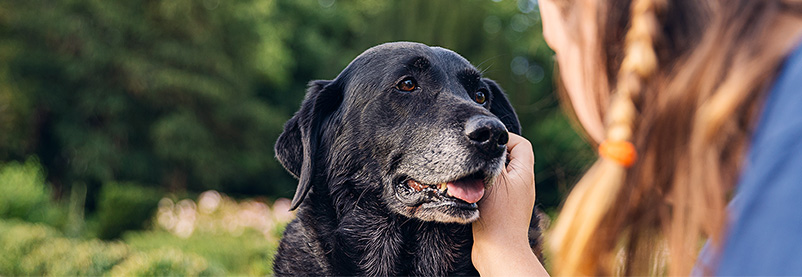
6. Offer Lots Of Love & Companionship
Most of all, a senior dog needs your consistent love and companionship! We can’t fix all the issues our fur babies
face as they age, but providing our love, snuggles, attention and time will make their life happy and absolutely
worth living.
Our pet’s senior years are a unique stage of life that deserve care, attention and thoughtful parenting. Remember to
trust your veterinarian and, most of all, cherish spending time with your fur baby in this time of their life!
You Might Also Like
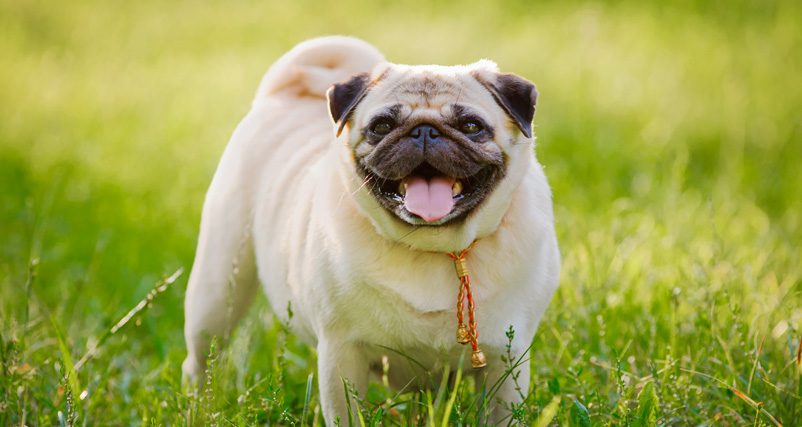
Pet Obesity: How To Help Your Pet Lose Weight Read More |
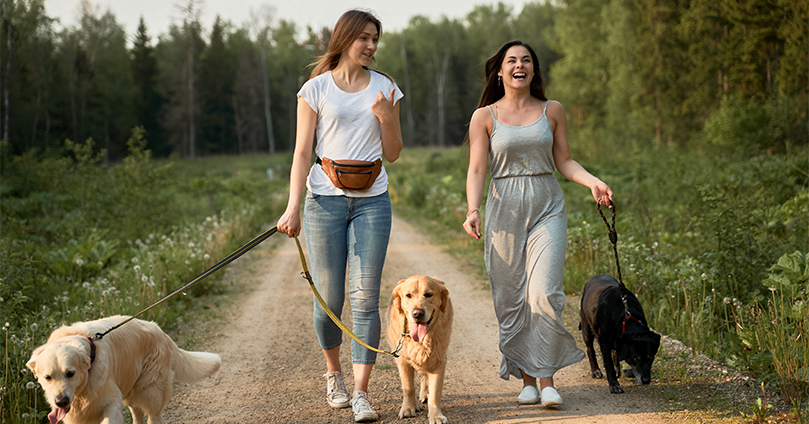
5 Powerful Pet Joint Supplements for Happier and Longer Walks! Read More |

Bladder And Urinary Issues In Pets: Key Symptoms & How To Prevent Problems Read More |

Pet Obesity: How To Help Your Pet Lose Weight
5 Powerful Pet Joint Supplements for Happier and Longer Walks!
Bladder And Urinary Issues In Pets: Key Symptoms & How To Prevent Problems

